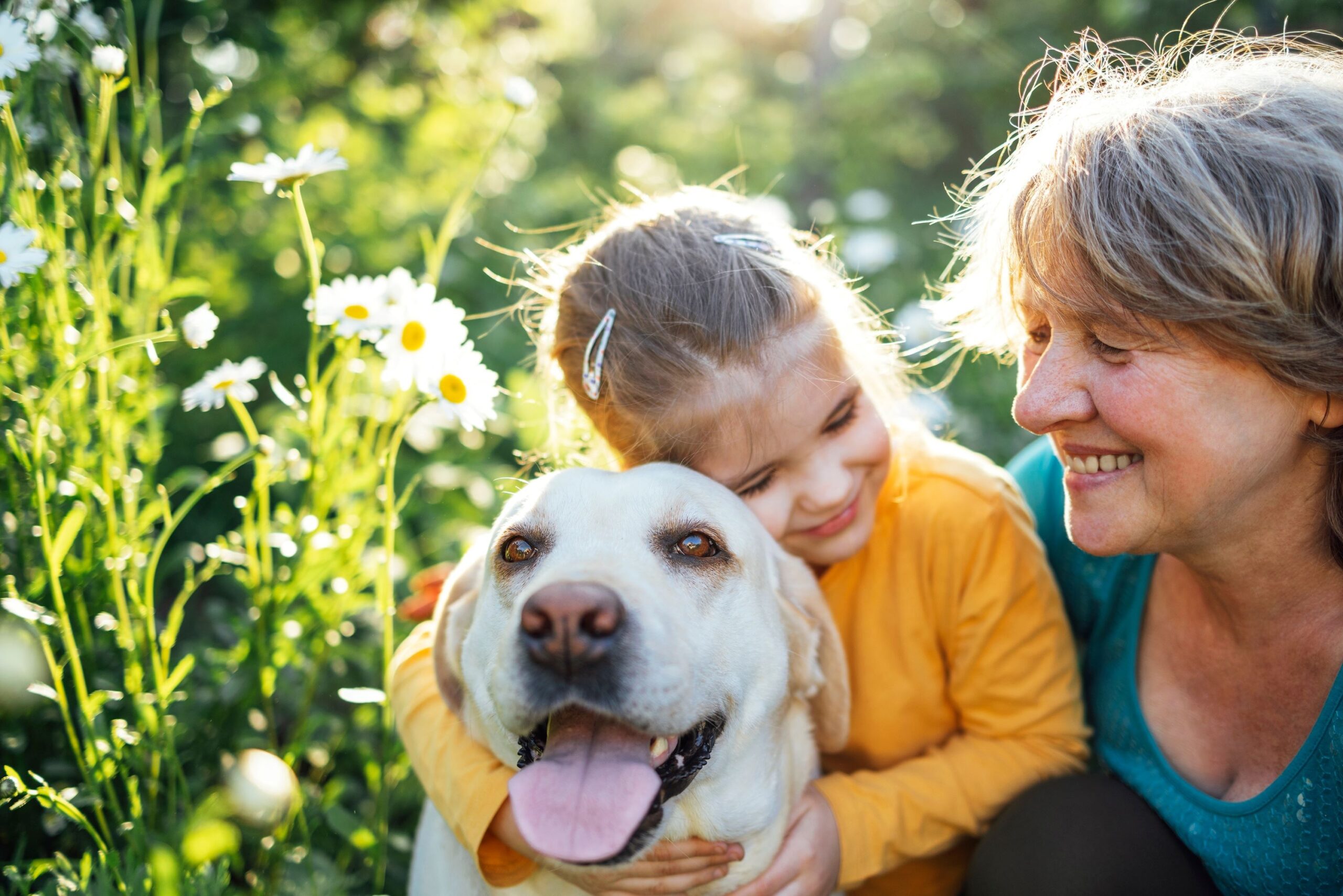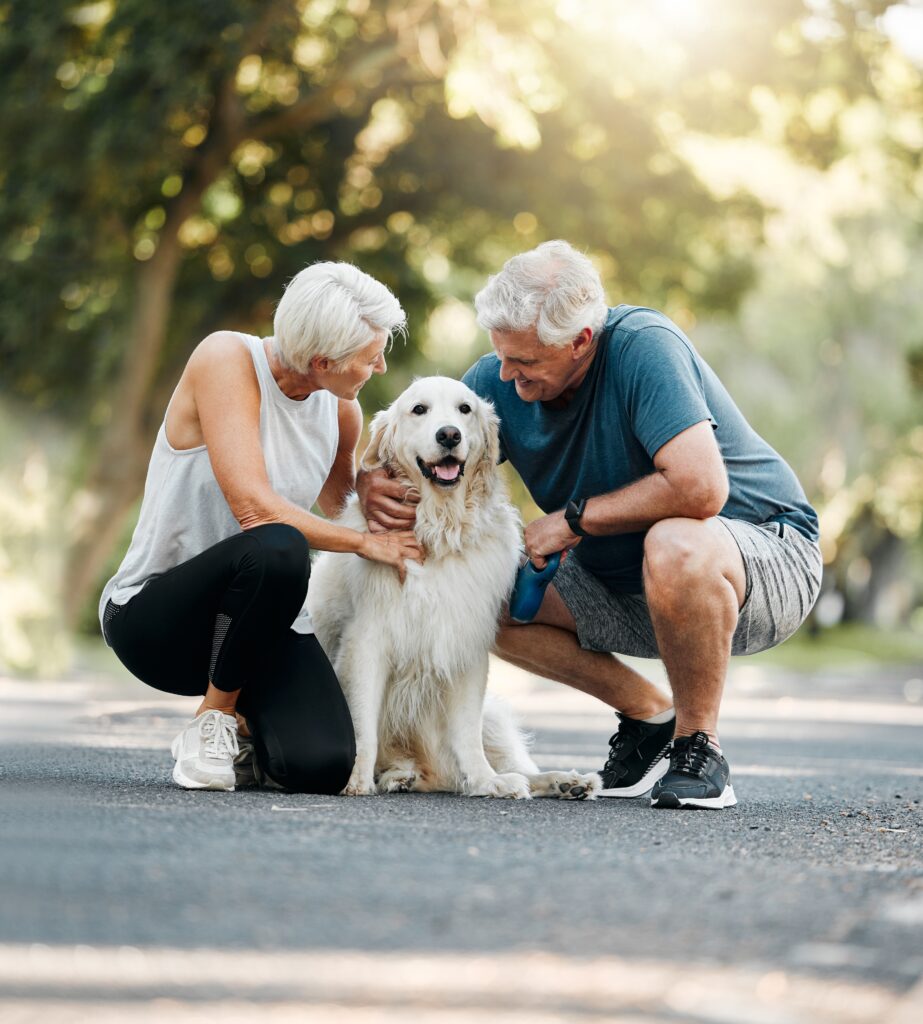
As we all know, cats and dogs age at a much different rate to humans, but it may still surprise you to learn at what age your best friend is considered a senior.
For cats, the title of “senior” is generally given from the age of seven years old, which we find to be rather interesting – we’ve met family cats that have reached their twenties! Dogs on the other hand, are quite different. This is due to difference in life expectancies between breeds, with smaller breeds generally reaching seniority much later than larger breeds. In general, your dog may be considered a senior anywhere between the ages of five to ten.
It’s also important to note the difference between a “senior” and a “geriatric” pet. A senior pet may be showing signs of ageing, but all in all they’re still healthy and happy. A geriatric pet however is usually toward the end of the ageing spectrum and is beginning to experience one or more health problems that may be uncomfortable or complicated.
Remember: these signs don’t necessarily mean alarm bells! It just means that they may need a little extra TLC (but we think you’re more than happy to dish that out anyway). Keep in mind that some animals are more likely to let their symptoms show than others. Cats for example are notorious for keeping their discomfort hidden.
Signs that your pet has reached their senior years include:
Change in mobility. As cats and dogs age, it’s very common for them to experience stiff joints or even develop arthritis. This may mean that your pet takes a little longer to get out of bed in the morning, or perhaps very cold weather causes your pet’s joints to appear to stiff. Or, your dog might not want to walk quite as far as they used to. To help with this, you can consider introducing a joint supplement in the form of a powder, chew or treat, or a specialty food from a reputable brand. These will contain ingredients such as green lipped mussels, glucosamine, chondroitin and omega oils, all of which assist in easing stiff joints. Additionally, make sure they have a nice, comfy bed or spot to sleep with supportive cushioning.
Change in weight. Obesity is common in senior pets, and it’s often tied to the fact that they aren’t moving around as much as they used to (see mobility above). Or, your senior pet could be underweight, suggesting gastrointestinal problems or even dental issues that come with old age. To help with this, you can look for a senior pet diet that contains fewer calories for weight loss, have regular dental check-ups with your vet, and take note of how your pet is reacting to food.
Change in sleeping patterns and alertness. Increased sleep is associated with ageing, as is cognitive behaviour and alertness. A cat or dog may also suddenly become “lost” in their own home, forget familiar faces, or stop responding to vocal queues as they once did. To help with this, check in with your vet to make sure your pet isn’t experiencing the onset of dementia.
Change in drinking and toilet habits. If you’re finding that your cat or dog is drinking more water than usual, it could be an indication of kidney issues. Similarly, urinating a greater volume could signal a health problem such as diabetes or urinary disease – all associated with older pets. Cats can be fussy about their water bowl to begin with, so be sure to be extra vigilant around senior cats. To help with this, keep an eye on your pet’s toileting habits and consult with your vet if you are suspicious about anything. Wet food or a special water fountain may also encourage extra hydration if your pet isn’t drinking enough, which can result in painful urinary stones.
Change in grooming habits. Less grooming may indicate that your pet is feeling a little sore, as many senior pets tend to do. To help with this, regular bathing and gentle brushing sessions are in order – and we think your pet will love this, too!
Caring for your pets in their golden years is both an honour and a privilege, a testament to the bond shared over a lifetime of companionship. As they age, our pets rely on us more than ever, giving us the opportunity to repay their beautiful friendship with love, patience, and dedicated care. This phase of their journey, while challenging, is a profound act of gratitude, allowing us to ensure their comfort and happiness in their twilight years. In nurturing them through this stage we cherish every moment of their continued presence.
We are an animal-loving team dedicated to supporting you through your pet’s end of life journey and we understand how difficult it can be to prepare to say goodbye.
Below, you will find access to some wonderful resources on caring for your senior pet. We hope that you find them comforting and reassuring.
Should you need to speak with our team at any time, we are available on 1800 100 909 to support you xo

Just like people, pets need a little extra medical attention and care as they grow older. Given the right diet, exercise, and veterinary care, senior pets can live long and happy lives.
While all pets are different, most cats and dogs are considered to be geriatric at age seven. Find tips from the team at Paws, Whiskers and Wags below on how to keep your pet active and healthy during their senior years.
When a beloved family pet becomes ill, injured, or elderly, pet owners are faced with the decision of when to say goodbye. Read more to learn the signs of when it might be time to let go of your loved one.
Creating a bucket list is a great way to honour your friendship before your pet passes.
We’re here to support you in any way we can. Because we’ve been through it too.
Our team is a full of animal lovers who are ready to support you through your grief, whenever and wherever you may need us xo
We understand that losing a pet is like losing a close friend or family member. At Pets in Peace, we treat every animal with the respect and care we would want for our own pets.
Our business has over 20 years’ experience in cremations. Founded in 1999 by Bev and Martin Hopp, we are Brisbane’s oldest operating and most trusted pet crematorium.
We pride ourselves on offering the highest standards of care and service to our customers. At every step, we’ll support you in making decisions about your pet’s aftercare. And if you need help dealing with your grief, we extend our hands to you with warmth and compassion.
We offer services to a wide range of locations across South East Queensland, extending as far as Gympie and surrounding areas.
*Travel Fees may apply.
Speak with our caring team today
The information contained on this page is general in nature and does not take into account your personal situation. You should consider whether the information is appropriate to your needs, and where appropriate, seek professional advice.
"*" indicates required fields